- Home
- Tad Williams
A Stark and Wormy Knight
A Stark and Wormy Knight Read online
This collection first published in ebook edition 2011
This collection including the Introduction © 2011 The Beale-Williams Enterprise
Collection edited by Deborah Beale
Cover art design by Lisa Tveit and Deborah Beale
ISBN this 2011 e-edition: 9780983824619
“And Ministers of Grace” © Tad Williams 2010. First published 2010 in Warriors edited by George R R Martin & Gardner Dozois
“A Stark and Wormy Knight” © Tad Williams 2009. First published 2009 in The Dragon Book (Magical Tales from the Masters of Modern Fantasy), edited by Jack Dann & Gardner Dozois
“The Storm Door” © Tad Williams 2010. First published 2010 in The New Dead: A Zombie Anthology, edited by Christopher Golden
“The Stranger’s Hands” © Tad Williams 2007. First published 2007 in Wizards (Magical Tales from the Masters of Modern Fantasy), edited by Jack Dann & Gardner Dozois
“Bad Guy Factory” © The Beale-Williams Enterprise 2011. Original to this collection
“The Thursday Men” © Tad Williams 2008. First published 2008 in “Hellboy: Oddest Jobs” edited by Christopher Golden and illustrated by Mike Mignola
“The Tenth Muse” © Tad Williams 2009. First published 2009 in The New Space Opera 2 edited by Gardner Dozois & Jonathan Strahan
“The Lamentably Comical Tragedy (or the Laughably Tragic Comedy) of Lixal Laqavee” © Tad Williams 2009. First published 2009 in Songs of the Dying Earth (Stories in Honor of Jack Vance), edited by George R. R. Martin & Gardner Dozois.
“The Terrible Conflagration at the Quiller’s Mint” © 2002, 2011 The Beale-Williams Enterprise
Black Sunshine © The Beale-Williams Enterprise 2011. Original to this collection
“Ants” © Tad Williams 2009. First published 2009 in Twilight Zone: 19 Original Stories on the 50th Anniversary, edited by Carol Serling.
A STARK AND WORMY KNIGHT
Tales of Fantasy, Science Fiction and Suspense
TAD WILLIAMS
Edited by Deborah Beale
Introduction
I’M KNOWN PRIMARILY AS A WRITER of novels, but there’s something truly special about short stories, especially in my field (which we usually lumber with the unwieldy handle of “Science Fiction and Fantasy” or the puzzling-to-outsiders “SF&F.”) Much of the history of our artform is contained in short stories, including classic works by people like Bradbury, Theodore Sturgeon, Lord Dunsany, Lovecraft, Poe, Asimov, Ursula Le Guin and Arthur C. Clarke, just to name a few. Even some of the best novels in our genre started out as shorter pieces, which were then combined with other stories to make famous collections (like Bradbury’s Martian Chronicles or Asimov’s I, Robot) or were expanded from earlier short works, like Zelazny’s prize-winning The Dream Master.
For me, though, the greatest lure of writing short stories is the chance to experiment, to find new ways (new to me, at least) to tell tales. I love to bring in elements of my work that I tend to play down (or at least try to control) in longer works, like my sense of humor and my love of fiddling around with language.
The title story of this collection, for instance, A Stark and Wormy Knight, is told in a very unusual, very playful and punning style that might wear out its welcome over a full-size novel, but is just another fascinating flavor of storytelling at shorter length.
All of these stories come from a stretch of 2007-2008 when, because of invitations to write for a bunch of anthologies (all of which attracted me because of the subject matter, the other participants, or both) I turned into a bit of a short-story machine. Not in the sense that any of it came easily — I should be so lucky! — but because I wrote something like half a dozen or more substantial short works in a stretch of less than a year’s time. This was very unusual for me — especially because, as always, I was also writing a novel at the time. (Probably two! I can’t quite remember.)
The first story, And Ministers of Grace, is either a standalone story or the opening gun in a large project — a sweeping epic about the eventual interplanetary war between Archimedes and Covenant, bastions of Science and Belief respectively. I’ve been thinking about this project for years but haven’t decided if or when I’d write it, so when a chance to write a story for Gardner Dozois’ and George R. R. Martin’s Warriors anthology presented itself, I thought it might be a good time to meet Lamentation Kane, who (if such an epic ever comes to be) would be one of the major players. He’s also a serious bad-ass, with all meanings of the word “serious” most definitely intended.
The second tale, A Stark and Wormy Knight, just sort of happened. I was thinking about a story idea for a dragon anthology and wondered, “How do dragons feel about these knights who are always trying to slay them?” But I couldn’t just stop there — it was going to be an entire anthology of dragon stories, so a simple reversal of the norm might not even blip the reader’s radar. But as I played with it I began to hear the voice of the story’s telling as sort of a cross between Dr. Seuss and James Joyce, and once I got that it pretty much wrote itself from there. I don’t believe stories ever “write themselves”, but this was about as close as I get to that inspired-by-the-muses kind of thing.
The Storm Door was for a New Dead anthology edited by Christopher Golden, and although this too reads like the first chapter of a novel (at least until the end!) it was meant to be just what it is, a meditation on dying and death and the things one might meet on the way from one to the other. It’s also about zombies, but not the stupid, clumsy kind. And I apologize for any gross errors in interpretation of the Tibetan Buddhist philosophy and faith — any mistakes are mine. Please do not write letters to the Dalai Lama. He already told me he’s tired of hearing from me and my readers.
I wrote The Stranger’s Hands this for the Wizards anthology edited by Jack Dann and Gardner Dozois. It’s about magic and magicians, but not in the normal way. Don’t worry! It has spells and trickery and danger and all that, but in the end it’s about how good and evil are not always as clear as the old stories lead us to believe — especially when sorcerors are involved. As Tolkien once said (or had a character say for him) “Do not meddle in the affairs of wizards, for they are subtle and quick to anger.” You’ll see how true that is in this one.
I was also inspired by the idea that the personal relationships in fantasy stories are often under-examined, especially when it comes down to matters of Good versus Evil — and let’s face it, that’s what most fantasy stories come down to, often in a rather pedestrian way. The bad guy capers on, usually explaining how he’s risen from the dead after X-thousand years and now will bring on an age of horror, because… well, because that’s what undead villains always do. And then the good guys reluctantly beat their plowshares into swords and go out to do the right thing, for the sake of free people (or at least happy feudal peasants) everywhere.
To which I always asked myself: Really? All conflict is that simple?
Anyway, this story raises a few questions about that traditional good vs. bad approach.
Bad Guy Factory is the kind of project you only get to see in collections like this. When I was writing Aquaman for DC Comics I proposed a series based on the idea that all those supervillains had to get their training and their equipment somewhere — I don’t think even the Joker can just call up Monster.Com and order a bunch of disposable henchmen at clerical staff wages. I wanted to get into the whole thing, the training, the economics, how a lifelong career in crime could seem like a good idea when you knew you were eventually going to get pounded on by Batman or the Flash.
Sadly, it never came to be. At the time I proposed it DC was in the middle of one of their all-inclusive “Crisis” events and it would have been immediately dragged into the s
ervice of that storyline, which wouldn’t have worked out for what I envisioned. I never really tried very hard to sell it after that, but I still think it would make a cool series. I also had a lot of help from Dietrich Smith and Walden Wong doing presentation artwork to go with it, and I’ve never properly thanked them. Thanks, guys. The Factory, especially with your help, deserved better, but at least now some actual readers will finally get to see it.
“The Thursday Men” was originally written for a Hellboy anthology edited by Christopher Golden, based (of course) on Mike Mignola’s now-famous creation. Being a comic book geek practically since birth, I’ve been a fan of Mike Mignola’s big red guy for a long time, and I jumped at the chance to write a story about him. Those who’ve read the comics know that Hellboy’s been around a long time (in his fictional world, anyway), born in 1944 when an attempt at supernaturally grabbing victory from the jaws of defeat by the Nazis went awry, and the only thing summoned the nether regions was Hellboy himself, at the time a little red horned baby. Because of his long life, he’s had lots of time for adventures, so there’s lots of room to play with him, both in geography and history.
My wife Deborah Beale was contemplating a ghost story set on the California coast north of San Francisco at the time, so the place was in my thoughts. If you haven’t been there, some of it is pretty much ideal supernatural fiction territory, windswept and sparsely populated. It was a pretty easy choice of location to make, and since Deb hasn’t written that story yet, I didn’t feel like I was poaching on her territory.
Everything else was straightforward, which is another great thing about Hellboy — he’ll deal with subtlety if he has to, but he prefers punching evil in the face. Hard. And repeatedly. When your hero is a giant guy who looks like a demon and likes to smash things, but also loves cats and beer, it’s hard to go wrong.
In other words, I think it’s basically a fun story, the interesting science-fictional/supernatural ideas notwithstanding. I hope you’ll think so too.
I love anthologies because they give me a chance to try things much different than what I usually do in my books, and this is definitely the case with The Tenth Muse, originally written for the Dozois-edited The New Space Opera 2 anthology. This is perhaps the closest thing to a classic, old-fashioned science fiction story I’ve ever written — I think it wouldn’t seem badly out of place in one of the magazines like Galaxy or Astounding. Even better, it’s one of the few space opera stories to feature actual opera. Like most of the best science-fiction tales of an earlier era, it’s not so much about technology or the future as it’s about solving a dangerous, perhaps fatal problem. And like all good problem stories, I struggled to make the plot fair to the reader so that he or she could try to solve the terrible mystery right alongside the characters.
The longest piece, The Lamentably… no, bugger that, let’s just call it Lixal… was part of a very good anthology inspired by the work of Jack Vance. In most cases this would be called a “pastiche”, which is a term meaning a friendly send-up of someone’s style. However, I know for a fact that most of the writers in our field have always been in awe of Jack’s style and would never dream of making fun of it. Rather, I think many of us tried to imitate it as purely as we could, because it seems like the only authentic way of telling a story set in his “Dying Earth” universe. And the style itself, with its elegance and sly sense of humor, has its own rewards for both the writer and the reader. I’m proud of Lixal, but I would never pretend that it exceeds the work of the master. I do, however, believe that it greatly exceeds mere imitative flattery and is about as good a fantasy story as I’m capable of writing in anybody’s style.
The Terrible Conflagration at the Quiller’s Mint is a story I wrote when we launched my Shadowmarch story as an online serial. I was doing stuff for the website and wrote one Shadowmarch-related story (you can find it in Rite, my first short story collection) about the early meetings between humans and Qar (the magical folk of Eion), but this one is a bit more subtle, especially if you haven’t read the Shadowmarch books. If you have, you may find some entertaining clues to the larger story and its history here. However, I think it works just as a tale, the kind that people tell and re-tell for generations.
Black Sunshine is another one with a strange history. This idea has bounced around in my head for decades, and at one point near the turn of the millenium it was going to be my next novel, but for various reasons that didn’t happen. I eventually wrote it in the form of a screenplay, because it was the best way to explain the music (mostly of the 70s) that I heard in my head with the various scenes. It would still make a cool, scary movie, and maybe it will happen someday — who knows? But it also has bits of autobiographical stuff in it from my own cool, scary teenage years, so even if it never gets filmed it will still hold a place in my heart.
The last story, Ants, is something I’d written in my head a long time before I wrote it down on paper. I did it for a commemorative Twilight Zone anthology edited by Carol Serling (wife of the show’s famous creator, Rod Serling.) But to be perfectly honest, it’s more of a Roald Dahl story than a Serling story in the way it juxtaposes horror with the ordinary. Those of you who’ve read Dahl’s short fiction will recognize that pretty quickly. Those who haven’t — what are you waiting for?
But one thing that definitely fits in that Twilight Zone universe is that it’s a story about how human beings are never quite as clever as they think they are. Either that, or the gods do indeed have a very dry sense of humor.
I hope you’ll enjoy the range of these stories. I hope they’ll make you smile (where appropriate) and recoil in horror (also where appropriate — please don’t confuse the two.) I had a wonderful time writing all of them and I think you’ll feel that when you read them.
Tad Williams, Woodside, CA. April 6th, 2011
And Ministers of Grace
THE SEED WHISPERS, SINGS, OFFERS, INSTRUCTS.
A wise man of the homeworld once said, “Human beings can alter their lives by altering their attitudes of mind.” Everything is possible for a committed man or woman. The universe is in our reach.
Visit the Orgasmium – now open 24 hours. We take Senior Credits. The Orgasmium – where YOU come first!
Your body temperature is normal. Your stress levels are normal, tending toward higher than normal. If this trend continues, you are recommended to see a physician.
I’m almost alive! And I’m your perfect companion – I’m entirely portable. I want to love you. Come try me. Trade my personality with friends. Join the fun!
Comb properties now available. Consult your local environment node. Brand new multi-family and single-family dwellings, low down payment with government entry loans…!
Commodity prices are up slightly on the Sackler Index at this hour, despite a morning of sluggish trading. The Prime Minister will detail her plans to reinvigorate the economy in her speech to Parliament…
A wise woman of the homeworld once said, “Keep your face to the sunshine and you cannot see the shadow.”
* * *
His name is Lamentation Kane and he is a Guardian of Covenant – a holy assassin. His masters have placed a seed of blasphemy in his head. It itches like unredeemed sin and fills his skull with foul pagan noise.
The faces of his fellow travelers on the landing shuttle are bored and vacuous. How can these infidels live with this constant murmur in their heads? How can they survive and stay sane with the constant pinpoint flashing of attention signals at the edge of vision, the raw, sharp pulse of a world bristling and burbling with information?
It is like being stuck in a hive of insects, Kane thinks — insects doing their best to imitate human existence without understanding it. He longs for the sweet, singular voice of Spirit, soothing as cool water on inflamed skin. Always before, no matter the terrors of his mission, that voice has been with him, soothing him, reminding him of his holy purpose. All his life, Spirit has been with him. All his life until now.
Humb
le yourselves therefore under the strong hand of God, so that He may raise you up in due time.
Sweet and gentle like spring rain. Unlike this unending drizzle of filth, each word Spirit has ever spoken has been precious, bright like silver.
Cast all your burdens on Him, for He cares for you. Be in control of yourself and alert. Your enemy, the devil, prowls around like a roaring lion, looking for someone to devour.
Those were the last words Spirit spoke to him before the military scientists silenced the Word of God and replaced it with the endless, godless prattle of the infidel world, Archimedes.
For the good of all mankind, they assured him: Lamentation Kane must sin again so that one day all men would be free to worship God. Besides, the elders pointed out, what was there for him to fear? If he succeeds and escapes Archimedes the pagan seed will be removed and Spirit will speak in his thoughts again. If he does not escape – well, Kane will hear the true voice of God at the foot of His mighty throne. Well done, my good and faithful servant…
Beginning descent. Please return to pods, the pagan voices chirp in his head, prickling like nettles. Thank you for traveling with us. Put all food and packaging in the receptacle and close it. This is your last chance to purchase duty-free drugs and alcohol. Cabin temperature is 20 degrees centigrade. Pull the harness snug. Beginning descent. Cabin pressure stable. Lander will detach in twenty seconds. Ten seconds. Nine seconds. Eight seconds…
It never ends, and each godless word burns, prickles, itches.
Who needs to know so much about nothing?
* * *
A child of one of the Christian cooperative farms on Covenant’s flat and empty plains, he was brought to New Jerusalem as a candidate for the elite Guardian unit. When he saw for the first time the white towers and golden domes of his planet’s greatest city, Kane had been certain that Heaven would look just that way. Now, as Hellas City rises up to meet him, capitol of great Archimedes and stronghold of his people’s enemies, it is bigger than even his grandest, most exaggerated memories of New Jerusalem – an immense sprawl with no visible ending, a lumpy white and gray and green patchwork of complex structures and orderly parks and lacy polyceramic web skyscrapers that bend gently in the cloudy upper skies like an oceanic kelp forest. The scale is astounding. For the first time ever in his life, Lamentation Kane has a moment of doubt – not in the rightness of his cause, but in the certainty of its victory.

 God Rest Ye Merry, Gentlepig
God Rest Ye Merry, Gentlepig Tailchaser's Song
Tailchaser's Song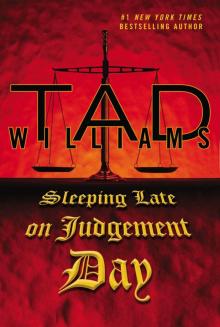 Sleeping Late on Judgement Day
Sleeping Late on Judgement Day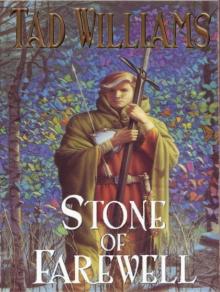 Stone of Farewell
Stone of Farewell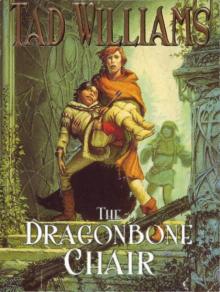 The Dragonbone Chair
The Dragonbone Chair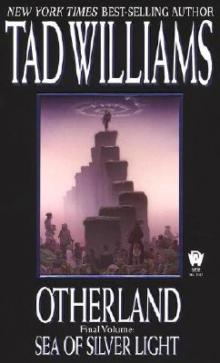 Sea of Silver Light
Sea of Silver Light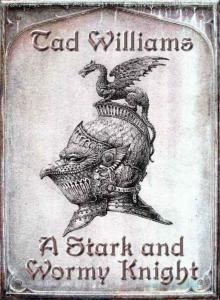 A Stark and Wormy Knight
A Stark and Wormy Knight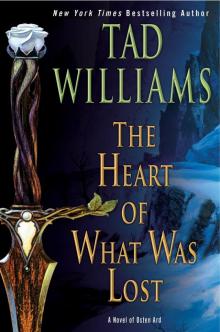 The Heart of What Was Lost
The Heart of What Was Lost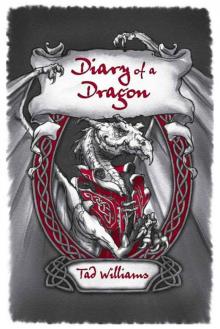 Diary of a Dragon
Diary of a Dragon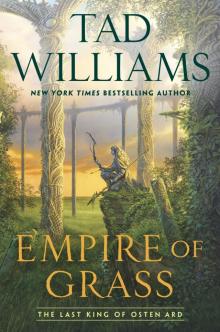 Last King of Osten Ard 02 - Empire of Grass
Last King of Osten Ard 02 - Empire of Grass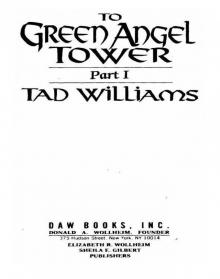 To Green Angel Tower, Volume 1
To Green Angel Tower, Volume 1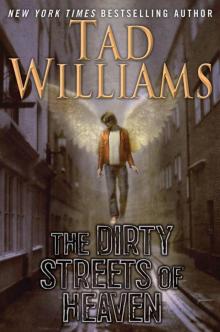 The Dirty Streets of Heaven
The Dirty Streets of Heaven River of Blue Fire
River of Blue Fire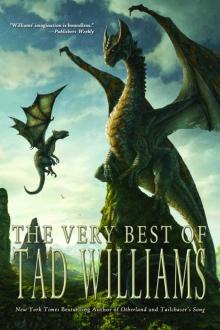 The Very Best of Tad Williams
The Very Best of Tad Williams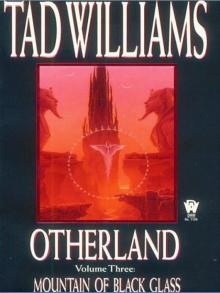 Mountain of Black Glass
Mountain of Black Glass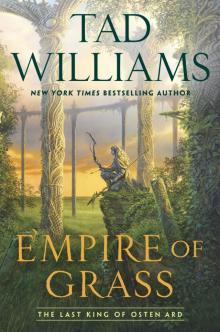 Empire of Grass
Empire of Grass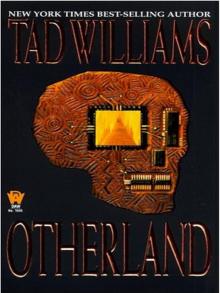 City of Golden Shadow
City of Golden Shadow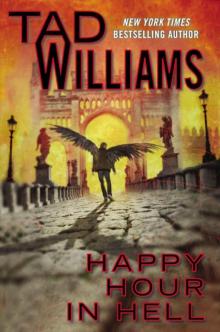 Happy Hour in Hell
Happy Hour in Hell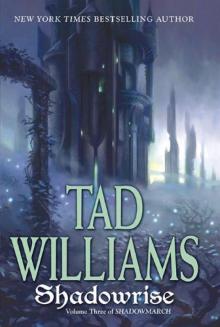 Shadowrise
Shadowrise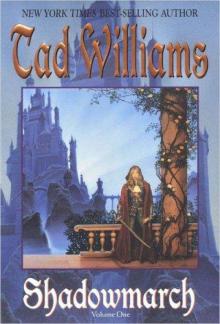 Shadowmarch
Shadowmarch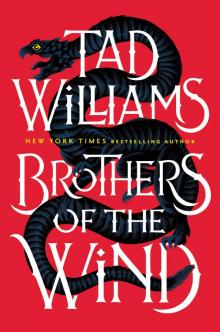 Brothers of the Wind
Brothers of the Wind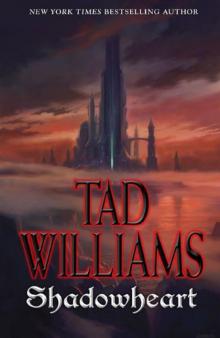 Shadowheart
Shadowheart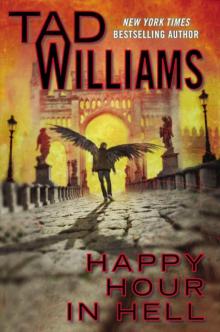 Bobby Dollar 02 - Happy Hour In Hell
Bobby Dollar 02 - Happy Hour In Hell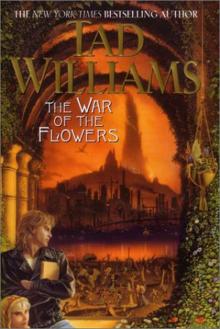 The War of the Flowers
The War of the Flowers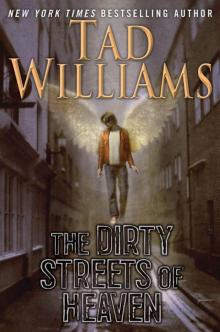 The Dirty Streets of Heaven bd-1
The Dirty Streets of Heaven bd-1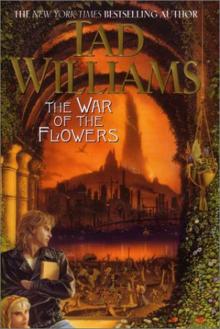 Tad Williams - The War of the Flowers (retail) (pdf)
Tad Williams - The War of the Flowers (retail) (pdf) Shadowheart s-4
Shadowheart s-4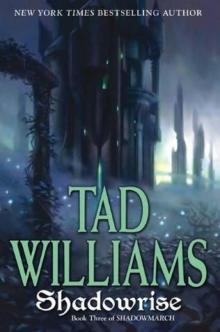 Shadowrise s-3
Shadowrise s-3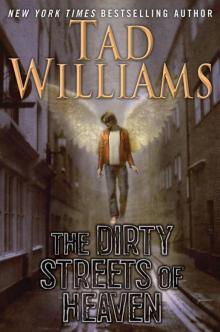 The Dirty Streets of Heaven: Volume One of Bobby Dollar
The Dirty Streets of Heaven: Volume One of Bobby Dollar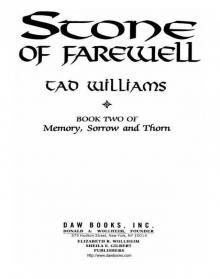 The Stone of Farewell
The Stone of Farewell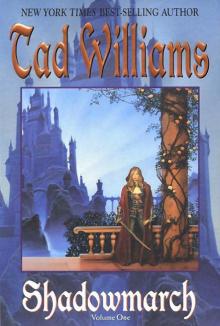 (Shadowmarch #1) Shadowmarch
(Shadowmarch #1) Shadowmarch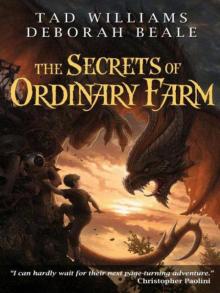 The Secrets of Ordinary Farm of-2
The Secrets of Ordinary Farm of-2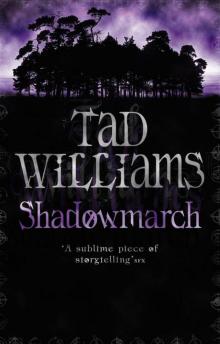 Shadowmarch s-1
Shadowmarch s-1![Bobby Dollar [04] God Rest Ye Merry, Gentlepig Read online](http://i1.bookreadfree.com/i1/04/06/bobby_dollar_04_god_rest_ye_merry_gentlepig_preview.jpg) Bobby Dollar [04] God Rest Ye Merry, Gentlepig
Bobby Dollar [04] God Rest Ye Merry, Gentlepig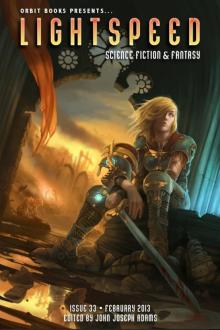 Lightspeed Issue 33
Lightspeed Issue 33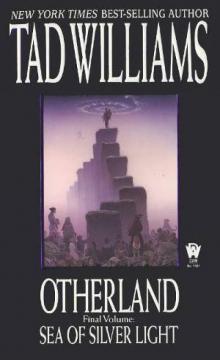 Sea of Silver Light o-4
Sea of Silver Light o-4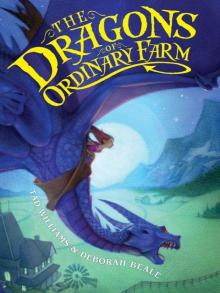 The Dragons of Ordinary Farm of-1
The Dragons of Ordinary Farm of-1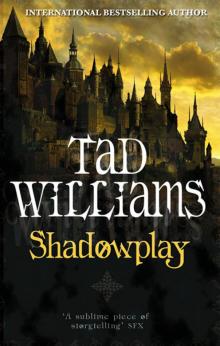 Shadowplay s-2
Shadowplay s-2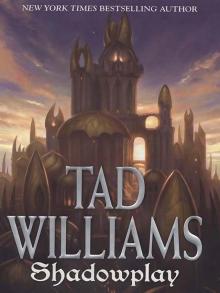 (Shadowmarch #2) Shadowplay
(Shadowmarch #2) Shadowplay